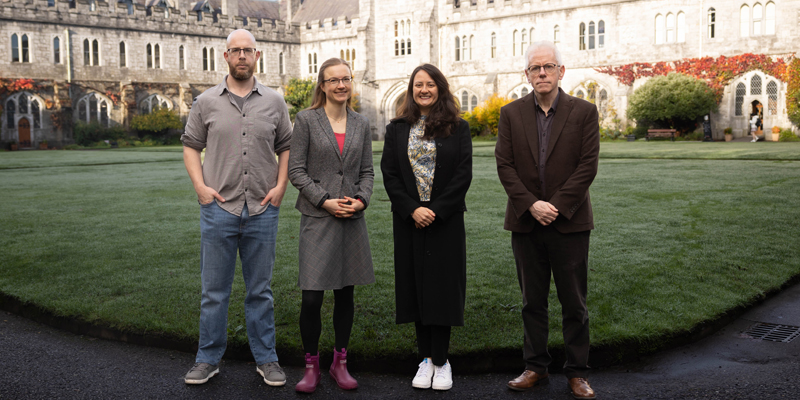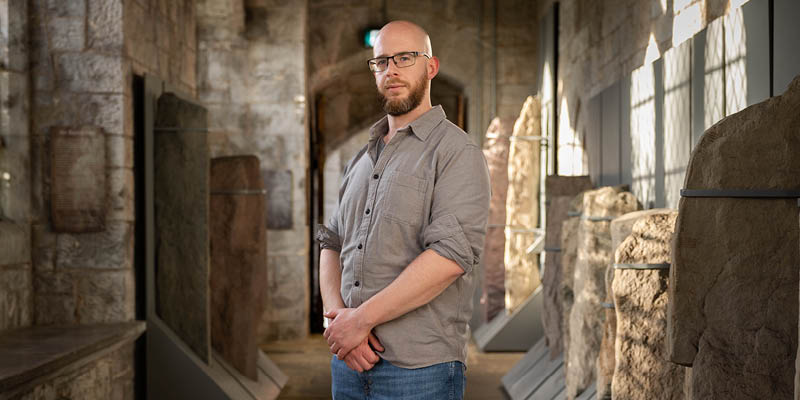In This Section
- Home
- About the College
- Governance
- College Committees & Steering Groups
- College Assembly
- College Council
- College Executive Management Committee
- College Academic Programmes and Curriculum Development Committee
- College Graduate Studies Committee
- College Research & Innovation Committee
- College Teaching Learning and Student Experience Committee
- College Student Recruitment and Outreach Committee
- College Sabbatical Research Leave Committee
- College of SEFS Adjunct Appointments Committee
- International Education Committee
- College Postgraduate Student Committee
- Athena SWAN Steering Group
- College Committees & Steering Groups
- Human Resources
- UCC STEM Awards
- Scholarships and Prizes
- Women in STEM Panel Talks
- Inaugural Professorial Lectures
- Athena SWAN in SEFS
- Proposal Calls
- Contact Us
- Science in Society Public Lecture Series
- Governance
- News
- Staff
- Schools and Departments
- Current Students
- Undergraduate Courses
- Postgraduate Courses
- International Students
- Research and Innovation
- Employability and Careers
- Outreach and Public Engagement
- Science Week
- Transition Year Programmes
SFI-IRC Pathway Programme Awards

Four post-doctoral researchers in UCC have received a total of €1.725 million in funding to investigate and find solutions for STEM (Science, Technology, Engineering, Mathematics) and AHSS (Arts, Humanities, Social Sciences) related challenges under the SFI-IRC Pathway programme.
The programme is a collaborative initiative between Science Foundation Ireland (SFI) and the Irish Research Council (IRC) to support early career research across all disciplines and to encourage interdisciplinary approaches. The awards will enable postdoctoral researchers to conduct independent research for a four–year period and will provide funding for a postgraduate student who will be primarily supervised by the awardee.
Their projects will optimise remediation of high-nutrient wastewaters derived from the agri-food sector, investigate whether oxytocin produced in the gastrointestinal tract has the potential to be a novel therapeutic target for the treatment of autism spectrum disorder (ASD) and study the effect of deafness stigma associated with children of deaf parents.
Dr Camila Tavares Pereira, based in the Department of Geography and MaREI, the world leading SFI Research Centre for Energy, Climate and Marine, has received €434,258 in research funding for her project which will establish a transferable and community-based Climate Change Risk Assessment (CCRA) model for dwellings in the Global South (GS), and transfer the GS knowledge to community-based measures in Ireland.
The TRIS (Transferability of Resilience in Informal Settlements) project will use diverse methodology such as fieldwork, interviews, workshops and remote sensing to reduce exposure and vulnerability to climate related extreme events, and enhance community led measures to upgrade dwellings in high-risk areas.
“This project will work with communities in the Global South, initially in Brazil, that are suffering from different climate-related hazards, such as flooding and landslides, address the components of climate risk such as threat, exposure, and vulnerability, and study the measures and actions taken by these communities to reduce the risk caused by climate change at a local and national level,” said Dr Camila Tavares Pereira.
“The aim is that our climate risk assessment model can be implanted in communities throughout Ireland. As we have seen in recent weeks in Cork and in other parts of the country, the impact of extreme climate change-related events such as flooding can be long lasting and life-changing for the communities they impact,” said Dr Camila Tavares Pereira.

Dr Neil Coughlan, School of Biological, Earth and Environmental Sciences. Photo: Ruben Martinez, UCC AVMS
The four funded UCC postdoctoral researchers are:
Dr Neil Coughlan, School of Biological, Earth and Environmental Sciences: Azbio - Sustainable valorisation of agri-food wastewaters. The Azbio (Azolla-Bioreactor) project will optimise remediation of high-nutrient wastewaters derived from the agri-food sector through secure multitiered indoor cultivation of Azolla using infrastructure already in place at UCC, while developing new multi-species bioreactors for greater system efficacy based on naturally occurring ecological-interactions. The use of waste Azolla biomass as a peat alternative for horticulture will also be assessed. Funding amount: €419,090.
Dr Camila Tavares Pereira, Department of Geography and MaREI: TRIS - Transferability of resilience in informal settlements (TRIS): a model for assessing climate risk and empowering women as decision-makers. Currently, 1 billion dwellers live in informal settlements characterised by a lack of urban services, poorly constructed housing, no legal tenure, and most vulnerable to climate-related risk. The primary objective of this project is to establish a transferable and community-based Climate Change Risk Assessment (CCRA) model for informal settlements in the Global South (GS) and transfer the GS knowledge of community-based adaptation measures and risk reduction to Ireland. Funding amount: €434,258.
Dr Friederike Uhlig, APC Microbiome Ireland: GO-AHEAD - Gastrointestinal Oxytocin is importAnt in HEalth And Disease. Oxytocin produced in the brain is known to play a crucial role for physiological health and sociability. The aim of this project is to investigate whether oxytocin produced in the gastrointestinal tract has potential as a novel therapeutic target for the treatment of disorders where gut-brain-axis communication is dysregulated such as autism spectrum disorder (SD). Funding amount: €436,073.
Dr Noel O’Connell, Institute for Social Science in the 21st Century (ISS21) and the School of Applied Social Sciences: CODA: A Hidden Minority Amongst the Majority. An Ethnographic Study of Hearing Children of Deaf Adults and the Negotiation of Threatened Social Identities. Currently, over 90% of children born to deaf adults (CODAs) can hear. It remains unclear the degree to which courtesy stigma or stigma by association impacts on CODAs. This project will address this question which is currently underexplored particularly using child-centred methodologies. Funding amount: €435,879.
Congratulating the four recipients from University College Cork on their awards, Professor John F. Cryan, UCC Vice President for Research and Innovation said: “Congratulations to these early-career researchers in receiving SFI-IRC Pathway awards, in key areas which will address critical scientific, health, and social challenges and create a sustainable future for all. The awards will provide important support to these emerging researchers, enabling them to develop their track record and transition to become independent research leaders.”
College of Science, Engineering and Food Science
Coláiste na hEolaíochta, na hInnealtóireachta agus na hEolaíochta Bia
Contact us
Block E, Level 3, Food Science Building, UCC, Cork, T12 YN60.
